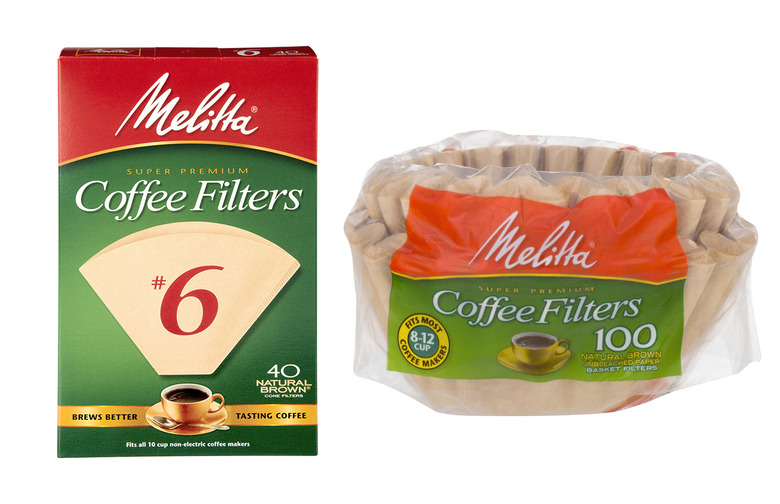The Story Of Pour-Over Coffee Began In Germany In 1908
Pour-over coffee has been rapidly gaining popularity over the last several years, in coffee shops as well as at home — but this technique for brewing might not have been possible had it not been for the inspiration of a German housewife more than a hundred years ago.
"In the early twentieth century, coffee was becoming more popular in Europe," explains Sarah Krisl, who is in charge of corporate/online communication and sustainability for the Melitta Group of Minden, Germany, about 100 miles southwest of Hamburg. "However, brewing methods of the time left grounds in the coffee, and the finished product was very bitter."
A housewife from Dresden named Melitta Bentz had an idea one day back in 1908. "She punched holes in the bottom of a brass pot and placed a piece of blotting paper from her son's notebook in it," says Krisl. "She then added ground coffee on top of the paper and poured water over the grounds. That was the birth of the paper coffee filter."
Bentz and her husband, Hugo, quickly patented a "filter top device lined with filter paper," and registered a company for the production and sale of the invention with the trade office in Dresden. The company registered additional patents in 1911 and 1913.
"After testing the invention thoroughly and making additional improvements," Krisl continues, "Melitta and Hugo Bentz started visiting stores selling household goods, department stores, and trade shows to demonstrate their coffee filter system." As the invention gained popularity, they won gold and silver medals at the International Hygiene Expo in Dresden. In 1914, the company moved to a new facility, invested in larger machines, and hired 15 people. In 1930, Bentz redesigned the filter into a cone shape.
Bentz died in 1950, but, says Krisl, "Melitta continued to grow and over the years has developed an array of other products." The company also expanded into roasting and packaging coffee. "In 1962," according to Krisl, "Melitta was the first company to offer ground coffee in vacuum-sealed packaging in the German market." Today the firm has more than 3,500 employees.
The paper used for Melitta filters — which now include brown filters made from unbleached wood pulp and white ones from pulp bleached with oxygen instead of chlorine — is produced in Germany, Brazil, and the United States. The filters sold in the U.S. — where the company maintains its American headquarters in Clearwater, Florida — are made primarily from southern pine and are fully compostable. Melitta also uses recycled paperboard for packaging cartons.
The company continues to innovate, and now offers a range of products including not just coffee and filters but also coffee machines (including automatic espresso machines) and accessories, as well as non-coffee items such as vacuum cleaner bags, paper towels, and foil and film for keeping food fresh. Melitta has come a long way from its namesake founder's blotting paper and brass pot.
